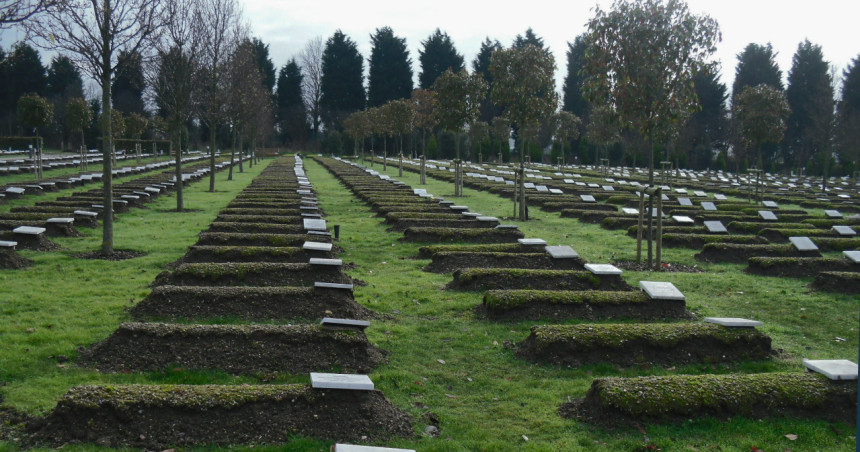It is often said by many, even practising Muslims, “he or she died peacefully”, when referring to a deceased family member.
Whilst I understand the emotions that can sometimes get the better of one at such sensitive times, “dying peacefully” is actually an oxymoron, a contradiction.
It is not an Islamic concept or even a phrase we should be using as Muslims.
Origins of the phrase
In reality, this comes from Western society, where it is used in bereavement announcements.
For example, such and such “passed away peacefully in his sleep”, or “peacefully at home with her family and friends”.
Living in Western non-Muslim societies, we may subconsciously take aspects of its culture, expressions, thoughts, and systems without realising where there is a clear contradiction with Islamic principles.
This is just one example.
Pangs of death vs. exit of a believer’s soul
We can further confuse two distinct matters.
One is the pangs or agonies of death (Sakrat al-Mawt): the intense throes, the violent struggle, the painful conditions that a person experiences in the latter parts of death.
The other is what has been authentically described in the hadīth of the Messenger ﷺ as the smooth, peaceful, tranquil transition and exit of a true believer’s soul from his or her body.
Whilst the two are closely connected, they are distinct and different phases of death that must not be confused.
Sakrat al-Mawt
The pangs of death, its pain, trial, and tribulations are well-known and documented in Islamic texts.
Allah (subḥānahu wa ta’āla) warns us of this state in the Qur’ān,
وَجَآءَتْ سَكْرَةُ ٱلْمَوْتِ بِٱلْحَقِّ ۖ ذَٰلِكَ مَا كُنتَ مِنْهُ تَحِيدُ
“And the intoxication of death will bring the truth; that is what you were trying to avoid.” [1]
It’s interesting to note that Sakrat al-Mawt is referred to as intoxication, pangs, agony, throes.
All of these words describe a very intense phase of death, which even our blessed and beloved Messenger ﷺ wasn’t exempted from.
Passing of the Messenger ﷺ
Indeed, the best of mankind, the leader of humanity, and the beloved of Allah (ﷺ) suffered from the pain of death.
In a hadīth discussing the death and burial of the Prophet ﷺ, it was narrated that Anas ibn Malik (radiy Allahu ‘anhu) said,
“When the Messenger ﷺ suffered the agonies of death that he suffered, Fātima (radiy Allahu ‘anha) said: ‘O my father, what a severe agony!’
“The Messenger of Allah ﷺ said: ‘Your father will suffer no more agony after this day. There has come to your father that which no-one can avoid, the death that everyone will encounter until the Day of Resurrection.’” [2]
In another narration, ‘A’isha (radiy Allahu ‘anha) reported,
“I saw the Messenger of Allah ﷺ, he had a cup of water, which he would dip his hand into and wipe his face with water, then he was saying, ‘O Allah, help me with the agonies of death!’” [3]
And in another narration by the Mother of the Believers (radiy Allahu ‘anha), the Prophet ﷺ said,
لاَ إِلَهَ إِلَّا اللَّهُ، إِنَّ لِلْمَوْتِ سَكَرَاتٍ
“There is no God except Allah. Death has its agonies.” [4]
Removal of misunderstanding
The Muhaddithūn (scholars of ahadīth) or authors and commentators of the Sīrah never described the act of passing away as peaceful, as is commonly expressed today. So how can we expect or think our loved ones will pass away “peacefully”?
This is by no means aimed at upsetting readers, but to remind ourselves of the reality and pangs of death, and remove a misunderstanding in the minds and words of many.
As for a person who passes away in his sleep or even a coma, does it mean he hasn’t experienced or escaped the pangs of death and has died peacefully?
This can be answered with another question. Is a person who is sleeping, sleeping “peacefully”, in “harmony”, and “enjoying” their sleep? Not necessarily.
We all know and have personally experienced extreme nightmares, anxiety, unease, and sleepless nights… despite being asleep.
Blessed few likely saved from the pain of death
Ironically, we probably consider the shahīd as having the most painful of deaths.
And yet, the Islamic texts suggest completely the opposite. No-one is saved from the hardship of death, except for the martyr!
Allah’s Messenger ﷺ is reported to have said,
“The martyr does not feel anything more when he is killed than one of you feels if he is pinched.” [5]
And the martyr is given seven special favours and privileges from Allah (subḥānahu wa ta’āla).
Once the first drop of his blood is shed, all his sins are forgiven. Before he dies, he can see the beauty of his palace in Paradise, not to mention that Allah does not consider the shahīd to be dead.
Rather, they are alive in al-Barzakh.
Allah (subḥānahu wa ta’āla) tells us,
وَلَا تَحْسَبَنَّ ٱلَّذِينَ قُتِلُوا۟ فِى سَبِيلِ ٱللَّهِ أَمْوَٰتًۢا ۚ بَلْ أَحْيَآءٌ عِندَ رَبِّهِمْ يُرْزَقُونَ
“And never think of those who have been killed in the cause of Allah as dead. Rather, they are alive with their Lord, receiving provision,” [6]
Being mindful of what we take from society
To end, we need to be more conscious and aware of what we can take from society and what is clearly in contradiction with our Dīn, Islam. Its dangers can be very pronounced if we are not careful.
Let us say, may Allah (subḥānahu wa ta’āla) make the pangs of death and the stages of the Hereafter easy for us all. And may He grant us and our deceased Jannat al-Firdaws, āmīn.
Also read
- Advice to those who are nearing death
- Advice to relatives of those nearing death
- Advice to kin of one approaching their last breath
- Advice for families on washing, shrouding, funeral, and burial
Source: Islam21c
Notes
[1] al-Qur’ān, 50:19
[2] Sunan Ibn Mājah, 1,629; https://sunnah.com/ibnmajah:1629
[3] Jāmi` al-Tirmidhi, 978; https://sunnah.com/tirmidhi:978
[4] Sahīh al-Bukhārī, 4,449; https://sunnah.com/bukhari:4449
[5] Sunan Ibn Mājah, 2,802; https://sunnah.com/ibnmajah:2802
[6] al-Qur’ān, 3:169







